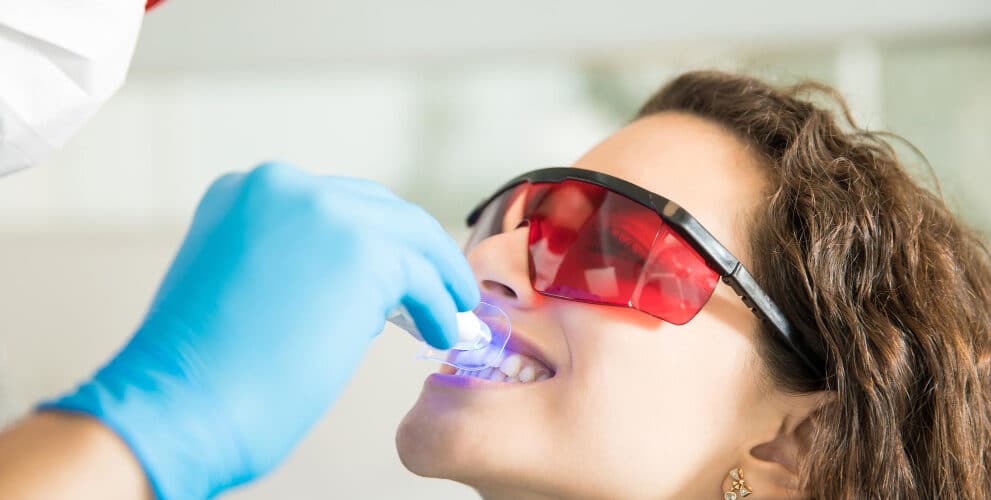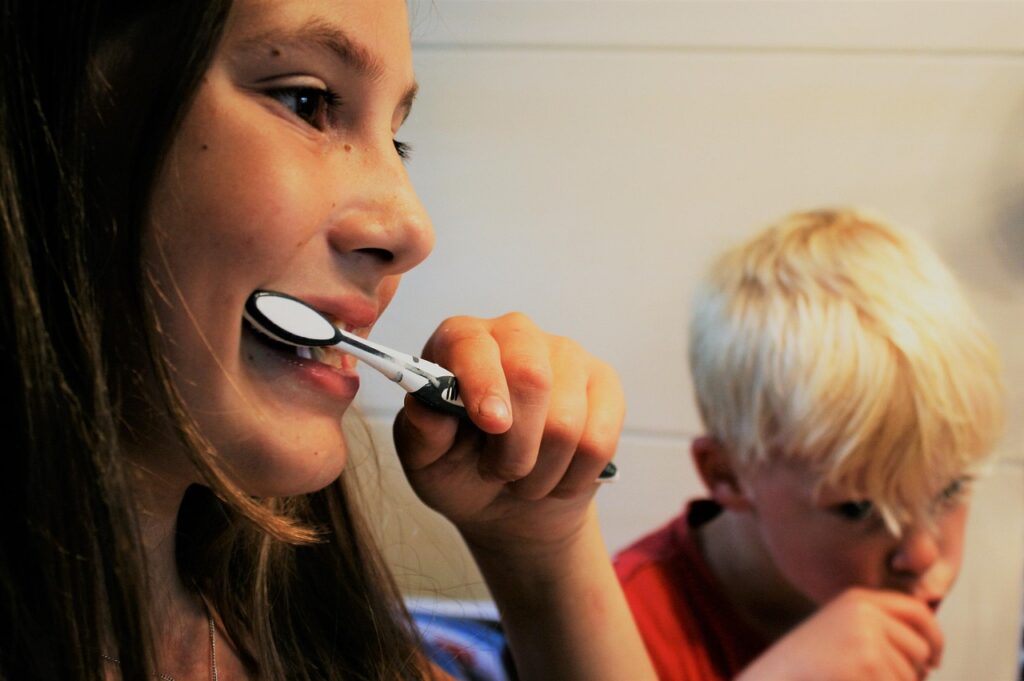FACT CHECK: Are viral DIY teeth whitening hacks safe for your smile?
DIY teeth whitening hacks often promise quick results but carry significant risks. Experts explain why such remedies are not safe and recommend professional solutions
Author
Author
- admin / 5 months

- 0
- 5 min read

Author
We are all on the lookout for quick ways to whiten our teeth, scrolling endlessly through the internet for home hacks that promise instant shine. From kitchen ingredients to DIY pastes, these remedies often spark curiosity, and sometimes, controversy.
In a viral post, actress Nia Sharma, who has 8.2 million followers on Instagram, attempted a teeth whitening hack that combines baking soda, salt, coconut oil, lemon, and toothpaste.
The post quickly divided her audience. While some users applauded the hack and even suggested alternatives like using mustard oil and salt, others were critical. One comment warned, “You are only damaging your tooth enamel.” Another user cautioned against abrasive substances like baking soda and suggested professional alternatives such as whitening strips, gels, or pens instead.
Are these hacks safe?
Baking soda has natural whitening properties and is often used as an ingredient in commercial toothpastes. Studies have shown that it acts as a mild abrasive, helping remove surface stains and giving the appearance of a whiter smile. The American Dental Association (ADA) considers baking soda safe for enamel and dentin, but some researchers rate it lower as a whitening agent because it may not be as effective as other professional or chemical-based products.
A report published in the Journal of Clinical Dentistry reviewed five studies on baking soda’s effectiveness in plaque removal, finding that baking soda alone effectively removed plaque.
On the other hand, a 2015 study found that lemon juice erodes tooth enamel—the protective layer that shields teeth from decay. Unlike nails or skin, enamel does not regenerate once damaged. Despite claims that the high pH of baking soda neutralises the acidity of lemon juice, there is no evidence that this balance completely prevents enamel erosion. Moreover, when preparing homemade mixtures, it is nearly impossible to measure the correct ratio of acid to base. Given these risks, using lemon juice as part of DIY whitening remedies is more harmful than beneficial.

In another study, researchers examined the effectiveness of natural, homemade tooth-whitening remedies that have become increasingly popular, including strawberries, banana peels, coconut oil rinse, basil, lemon, activated charcoal, apple cider vinegar, baking soda, and turmeric. The experiment was conducted on ninety extracted, caries-free teeth, which were treated with one of six agents: baking soda, activated charcoal, lemon juice, strawberries, Colgate Optic Whitening toothpaste, and the Opalescence 20% home-bleaching system. The enamel shade of each sample was measured at baseline, on the 5th and 10th days, and again at the 4th week to assess colour stability.
The findings showed that by the 10th day, all groups except the lemon group displayed significant changes in tooth colour. By the 4th week, however, all groups showed statistically significant differences, with the highest change observed in the lemon group, followed by Opalescence 20% and Colgate Optic Whitening toothpaste. The lowest change was recorded with strawberries.
“Statistically significant differences were obtained with baking soda, activated charcoal, strawberries, lemon juice, Colgate Optic Whitening toothpaste, and Opalescence 20%. Further studies are required to evaluate the effects of these agents on surface roughness and colour stability,” the researchers concluded.
Baking soda and salt are often used for their abrasive qualities, while coconut oil is praised as a natural cleanser. But the real question is—when these ingredients are mixed together, do they actually deliver on their promise, or do they pose a greater risk to your dental health?
Dr Dhiraj Vohra, a dentist practising in Delhi’s Khan Market for over 25 years, said the effect is temporary. “There is no scientific proof for it and I would not recommend lemon juice. It is corrosive and abrasive to the tooth. If you want whitening, use a whitening toothpaste, which is a certified product. These products have gone through all the checks and balances and are safe for the tooth. You can go for the whitening a dentist recommends or simply use a whitening toothpaste,” Dr Vohra said.
On Nia’s reel specifically, the dentist noted: “I would not recommend it to my patients. If somebody else is recommending it, that is their way of looking at it. Personally, I will not recommend it because I have not come across any article.”
Explaining the potential risks of using abrasive ingredients like baking soda, salt, and lemon juice regularly, he cautioned: “They will abrade the tooth surface. Lemon juice and similar acidic substances will make teeth more permeable and damage the enamel. The enamel is a protective layer of the tooth, and using acid in this way will eventually have a harmful effect.”
Dr Vohra advised using over-the-counter whitening toothpastes, undergoing professional cleaning by a dentist, or opting for bleaching agents certified by the American Dental Association or the Indian Dental Association. He strongly cautioned against quackery, noting that while such remedies may appear to work for some people, in the long term they are “absolutely harmful” and not something he would recommend to any of his patients.
Also read: FACT CHECK: Should you brush your teeth as soon as you wake up?










